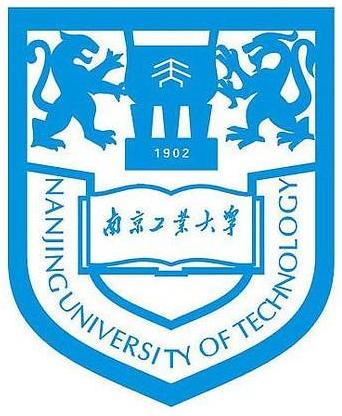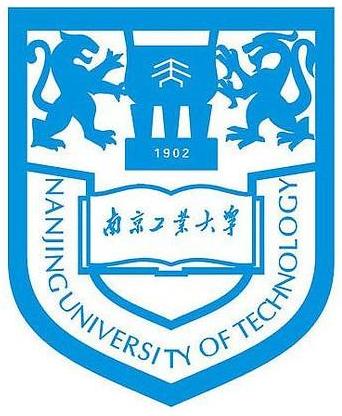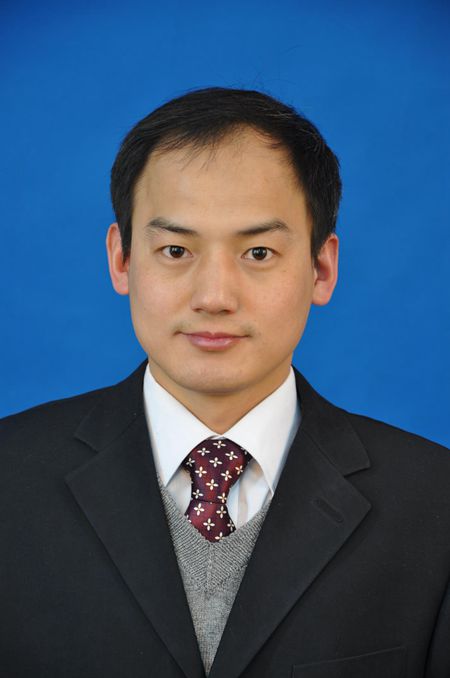
Mouquan Shen,
Professor, College of Electrical Engineering and Control Scienece, Nanjing Tech University, China
Biography:
Mouquan Shen, Professor, the "Six Talent Peaks" of Jiangsu Province. Postdoctoral at Southeast University, visiting scholar at overseas universities such as the University of Hong Kong, Yeungnam University, South Korea, and the University of Adelaide, Australia. He is the PI of more than 10 provincial-level projects, including the National Natural Science Foundation of China, the National Bureau of Foreign Experts Affairs, and the Jiangsu Provincial Natural Science Foundation. In recent years, more than 100 papers with an H-index of 24 have been published in journals such as IEEE · Transactionson · Automatic Control, IEEE Transactionson · Cybernetics, and IEEE Transactions on Systems, Man, and Cybernetics: Systems. He has been severed as Editor-in-Cheif, Associate Editor, or Editorial Board Member of 12 international journals. He is also an active reviewer of over 80 domestic and international journals, including IEEE · TAC and Automatica, as well as the corresponding reviewer for the National Natural Science Foundation of China and multiple provincial and municipal science and technology projects.
Speech Title:
Basic issues of Information Technology
Abstract:
This report give some basic issues of Information Technology, especially the hot topic of the event-triggered communication. Next, an overview of the research background and some existing results in event-triggered control are provided. Then, some novelty works are presented, including the integral-type event-triggered scheme, the discrete-sampling event-triggered scheme, the threshold-dependent event-triggered scheme, and the dynamic event-triggered scheme based on instantaneous and average triggering errors. Finally, some future research topics are discussed.

Waqas Haider Khan Bangyal,
Associate Professor, Member IEEE/ACM, In charge dean of Faculty of Applied Sciences and Computing, Faculty of Computing, Department of Computer Science, Kohsar University Murree, Pakistan
Biography:
Dr. Waqas Haider Khan Bangyal received his Ph.D. in Computer Science. Dr. Bangyal is currently an Associate Professor/Chairperson Department of Computer Science, Kohsar University, Murree, Punjab, Pakistan. Dr. Bangyal has over 80 publications, including book chapters, journal and conference papers. His publications have been published in the top venue, such as IEEE, Elsevier, and Springer. Dr. Bangyal is a Senior Member of IEEE SMC and an active Member of ACM and vice president of the INNS Pakistan Chapter. Dr. Bangyal has 20+ years of global experience in Computer Science, Computer Vision, Artificial Intelligence, IoT, Big Data, and block chain. He has also been a facilitator, mentor, and coach for various programs. His area of expertise is technology and innovation and he offers advice on how to promote and convert ideas into successful products/ solutions as well as build strategies with a focus on personal and career development. Dr. Bangyal is serving as an editorial board member for various journals including Elsevier, IEEE , Wiley, IEEE Access, IEEE IoT and Springer Journals. He has served as the TPC co-chair, publicity co-chair, organization chair, and TPC member for many international conferences. He has been a reviewer for prestigious journals of Elsevier, Springer, and Wiley publications, and evolved in holding a number of events as a member of the executive or technical committee. His research interests include Optimization, Machine Learning & Meta-heuristics, Image Processing, and Pattern Recognition. He is a member of ACM and IEEE.
Speech Title:
Role of Artificial Intelligence in Healthcare
Abstract:
Artificial Intelligence has a great impact on the healthcare field and will continue to transform health systems radically. Every healthcare professional should arm themselves with the knowledge to face these changes. Given advice and warnings from some of the top minds like Elon Mush and the late Steven Hawkings, it seems inevitable that AI is going into a fast-pace development in the next few years and likely to impact every aspect of our lives very soon. This talk will describe some of the most important big data applications in healthcare, namely, quality and patient safety, early detection of diseases and individualized prevention. We will also discuss how AI will go hand-in-hand in the future of health care for all the stakeholders, in terms of high-performance healthcare and precision medicine.
On average, a patient generates 80 megabytes of imaging each year. For a healthcare organization, this trove of data from patients has an obvious clinical, financial, and operational value. However, the value of AI in health care is only realized when this raw information is converted into knowledge that changes the practice. The next generation of healthcare delivery requires a team effort from data science, delivery science, and implementation science to ensure that the right patient receives the right care from the right provider at the right time and the right place. In this talk, It will discuss opportunities and challenges faced when bringing big data for healthcare illustrated through some of our ongoing efforts.
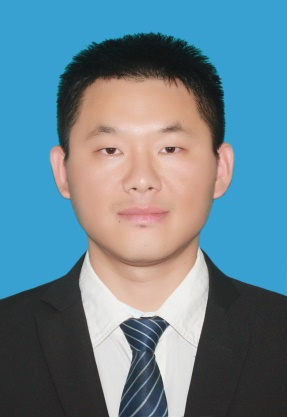
Jiafu Su, Associate Professor,
National Research Base of Intelligent Manufacturing Service, Chongqing Technology and Business University, China.
Biography:
Jiafu Su is an associate professor, Ph.D., postdoctoral fellow at Chongqing Technology and Business University. His main research methods are: knowledge management, innovation system and decision theory. Currently, he serves as a board member of Computer Integrated Manufacturing Systems (EI), editor of International Journal of Technology Management (SSCI), chapter chair of MSIE2021, and a reviewer for the Journal of the Operational Research Society, Knowledge-based Systems, Journal of Zhejiang University, and Computer Integrated Manufacturing Systems, and other high-level academic journals. He has published more than 60 papers in d academic journals.
Speech Title:
Evolution of Knowledge Sharing Behavior in Collaborative Innovation Networks
Abstract:
Heterogeneous collaborative innovation network is an open innovation network organization, which can give full play to the synergistic advantages of multiple innovation subjects. Knowledge sharing plays a vital role for the performance of heterogeneous collaborative innovation network. However, the heterogeneous collaborative innovation network and its elements are with significant complex characteristics, such as heterogeneity and dynamicity, etc., which greatly improve the complexity of knowledge sharing behavior in innovation networks, and present bigger challenges to effectively explore the knowledge sharing behavior mechanisms and improve the knowledge sharing behavior management performance. Therefore, aiming at the problem of knowledge sharing behavior mechanism in heterogeneous collaborative innovation network, it needs to carry out the following detailed work: firstly, a heterogeneous collaborative innovation network model with more reality and details will be built to accurately describe its structure and functional characteristics. Secondly, the micro occurrence mechanism of knowledge sharing behavior among innovation subjects will be studied and revealed from the view of competition-cooperation relationship. Furthermore, the macro emergence mechanism of knowledge sharing behavior in the whole heterogeneous collaborative innovation network will be explored and revealed based on the network evolutionary game theory. The achievements of this work can contribute to the theoretical system of collaborative innovation knowledge management, and provide a helpful decision support to improve the knowledge sharing behavior management performance of heterogeneous collaborative innovation network.
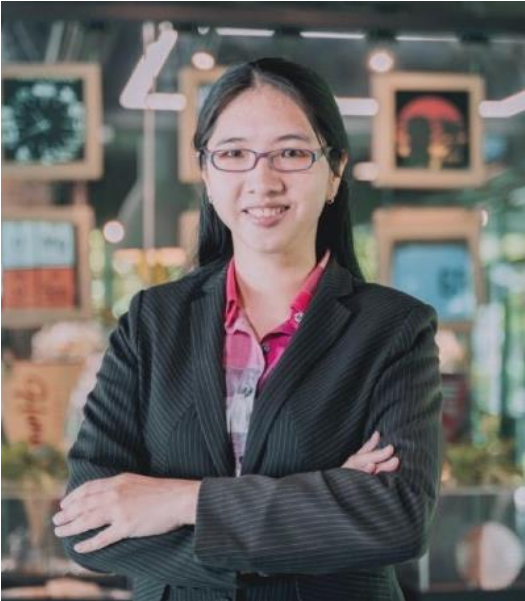
Teh Sin Yin, Associate Professor,
Operations & Business Analytics, School of Management, Universiti Sains Malaysia, Malaysia.
Biography:
TEH Sin Yin (Ph.D., CMILT, MLogM) is an Associate Professor of Operations and Business Analytics in the School of Management, Universiti Sains Malaysia. She has strong academic background in Statistics (USM), Executive Program (Applied Business Analytics) and Executive Program (AI: Implications for Business Strategy) awarded by Massachusetts Institute of Technology (MIT). She was a fellow and member of the United Nations System Staff College (UNSSC) and Data-Pop Alliance, New York. She was also research fellow at the City University of Hong Kong, University Tunku Abdul Rahman (UTAR) and AK Shipping.
Dr. Teh is a certified HRDF trainer, TRIZ trainer and Tableau Specialist. She has conducted TRIZ, Tableau, business analytics seminars and workshops for practitioners and researchers from MNCs, SMEs and government agencies. She was involved and had successfully completed research projects on ICT with the Penang state government; "a mobile learning system using machine learning and cloud" with Motorola Solutions Malaysia; "an integration of FMEA and TRIZ" and "Data Driven End-to-End Process FMEA Improvement" with SanminaSCI Systems.
Dr. Teh has published more than 100 papers in international journals and proceedings including excellent journals of ISI Q1. She has attended many conferences and held the position of keynote speakers and session chairs. Her research interests are statistical process/quality control, operations management, business analytics, data mining, robust statistics and TRIZ theory of inventive problem solving.
Speech Title:
The Power of Digital Technologies in the New Era Logistics
Abstract:
Logistics is the process of planning, implementing, and controlling the efficient, effective flow and storage of goods, services, and related information from point of origin to point of consumption for the purpose of conforming to customer requirements. The logistics industry is at the forefront in embracing new technologies to improve efficiencies and effectiveness. In the digital economy, technologies help accelerate speedy and timely transformation in logistics and transport industry to retain its long-term competitive advantages. According to the Logistics, Supply Chain and Transportation 2023 report by Forbes Insights, nearly two-thirds of logistics executives say they expect technology to deliver significant productivity gains. Digital technologies will have the inevitable impact on logistics and transport in the coming years with solutions such as voice recognition, robotics, artificial intelligence and machine learning. Customer experience is expected to enhance via technologies beyond today such as big data analytics, internet of things (IoT) track and trace, autonomous vehicles and platooning and blockchain. Today, logistics professionals have a powerful array of new digital logistics weapons that can be strategically deployed to unlock significant value and create customer-focused logistics systems. Those companies that recognize this changing landscape and invest prudently in process change and supporting digital logistics technologies will reap vast benefits.
Invited Speakers:
Professor, IEEE Member, Vedvyas Jayprakashnarayan Dwivedi
Indus University Ahmedabad, India
Speech Title: Enhancing the Organizational and Societal Productivity: A Strategic Future Vision


